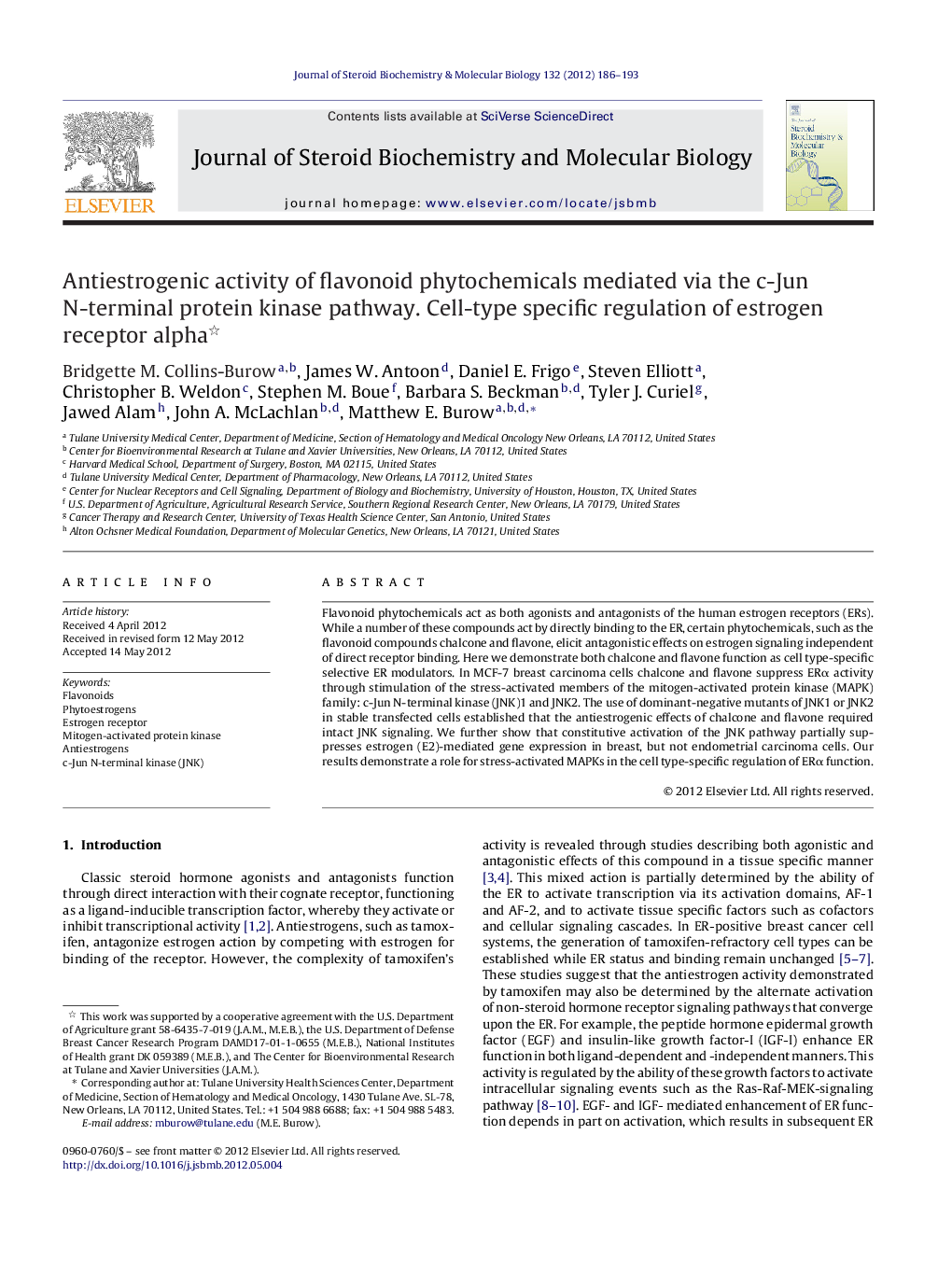| کد مقاله | کد نشریه | سال انتشار | مقاله انگلیسی | نسخه تمام متن |
|---|---|---|---|---|
| 1991595 | 1541019 | 2012 | 8 صفحه PDF | دانلود رایگان |

Flavonoid phytochemicals act as both agonists and antagonists of the human estrogen receptors (ERs). While a number of these compounds act by directly binding to the ER, certain phytochemicals, such as the flavonoid compounds chalcone and flavone, elicit antagonistic effects on estrogen signaling independent of direct receptor binding. Here we demonstrate both chalcone and flavone function as cell type-specific selective ER modulators. In MCF-7 breast carcinoma cells chalcone and flavone suppress ERα activity through stimulation of the stress-activated members of the mitogen-activated protein kinase (MAPK) family: c-Jun N-terminal kinase (JNK)1 and JNK2. The use of dominant-negative mutants of JNK1 or JNK2 in stable transfected cells established that the antiestrogenic effects of chalcone and flavone required intact JNK signaling. We further show that constitutive activation of the JNK pathway partially suppresses estrogen (E2)-mediated gene expression in breast, but not endometrial carcinoma cells. Our results demonstrate a role for stress-activated MAPKs in the cell type-specific regulation of ERα function.
► Chalcone and flavone have cell-type specific antiestrogenic activity.
► Chalcone and flavone suppress ERα activity through stimulation of MAPKs.
► Constitutive activation of the JNK pathway suppresses ER signaling in breast cancer.
► Constitutive activation of the JNK pathway does not suppress ER signaling in endometrial cancer.
Journal: The Journal of Steroid Biochemistry and Molecular Biology - Volume 132, Issues 1–2, October 2012, Pages 186–193